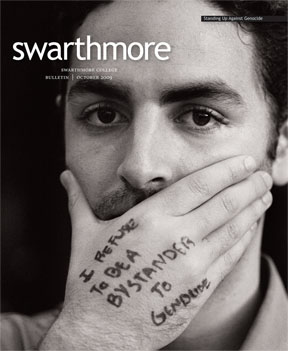Due to weather conditions, this event has been rescheduled for April 22, 2010.
Black Power Panel
Thursday, February 11, 2010
7:00 p.m. Science Center 101
“Black power represents one of the most enduring and controversial stories of racial tumult, social protest, and political upheaval of our time, complete with a cast of tragic and heroic historical characters: Black Muslims, FBI agents, Martin Luther King Jr., Black Panthers, Carmichael, Lyndon B. Johnson, the New Left, and Fidel Castro all play major and minor parts in the era this movement helped define. Black power’s reach was global, spanning continents and crossing oceans.”
– Peniel Joseph, The
Chronicle Review 2006
Panel Participants:
- Prof. Robyn Spencer, History, Lehman College
- The Black Panther Party’s Evolution in Oakland (work in progress)
- Prof. Christopher Strain, American Studies, Florida Atlantic University
- Pure Fire: Self?Defense as Activism in the Civil Rights Era
- Prof. Rhonda Williams, History, Case Western Reserve University, The
- Politics of Public Housing: Black Women’s Struggles Against Urban Inequality
- Prof. Yohuru Williams, African American History, Fairfield University,
- Black Politics/White Power: Civil Rights, Black Power and Black Panthers in New Haven
Sponsored by Black Studies, Peace and Conflict Studies, Department of Political Science, the Lang Center for Civic and Social Responsibility, the Black Cultural Center, and the Dean’s Office for Multicultural Affairs
contact: Anna Everetts, Programs Office, Swarthmore College, aeveret1@swarthmore.edu
Thursday, February 11, 2010
7:00 p.m. Science Center 101
“Black power represents one of the most enduring and controversial
stories of racial tumult, social protest, and political upheaval of our time,
complete with a cast of tragic and heroic historical characters: Black
Muslims, FBI agents, Martin Luther King Jr., Black Panthers, Carmichael,
Lyndon B. Johnson, the New Left, and Fidel Castro all play major and
minor parts in the era this movement helped define. Black power’s reach
was global, spanning continents and crossing oceans.” Peniel Joseph, The
Chronicle Review 2006
Panel Participants:
- Prof. Robyn Spencer, History, Lehman College
- The Black Panther Party’s Evolution in Oakland (work in progress)
- Prof. Christopher Strain, American Studies, Florida Atlantic University
- Pure Fire: Self?Defense as Activism in the Civil Rights Era
- Prof. Rhonda Williams, History, Case Western Reserve University, The
- Politics of Public Housing: Black Women’s Struggles Against Urban Inequality
- Prof. Yohuru Williams, African American History, Fairfield University,
- Black Politics/White Power: Civil Rights, Black Power and Black Panthers in New Haven
Sponsored by Black Studies, Peace and Conflict Studies, Department of
Political Science, the Lang Center for Civic and Social Responsibility, the
Black Cultural Center, and the Dean’s Office for Multicultural Affairs
contact: Anna Everetts, Programs Office, Swarthmore College, aeveret1@swarthmore.edu


 True stories of silence, secrecy and healing.Theatre of Witness presents ‘We Carried Your Secrets’
True stories of silence, secrecy and healing.Theatre of Witness presents ‘We Carried Your Secrets’


 Borderline Belonging: Religious Settlement, Neo-Nationalism and the Politics of Exclusion on the Israeli ‘Frontier’
Borderline Belonging: Religious Settlement, Neo-Nationalism and the Politics of Exclusion on the Israeli ‘Frontier’ The Solomon Asch Center for study of Ethnopolitical Conflict
The Solomon Asch Center for study of Ethnopolitical Conflict  “THE U.S. MILITARY HAS NOT RECENTLY INTERVENED IN LATIN AMERICA”: FALSE
“THE U.S. MILITARY HAS NOT RECENTLY INTERVENED IN LATIN AMERICA”: FALSE